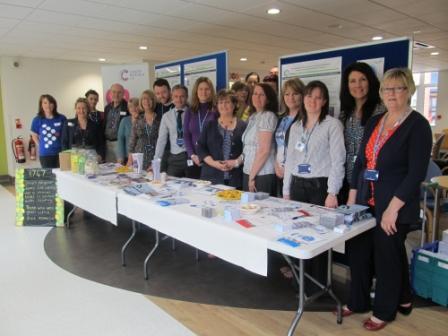
A potential breakthrough in breast cancer treatment is being pioneered by doctors at a Merseyside cancer centre.
A new hormone-based treatment being researched at Clatterbridge Cancer Centre in the Wirral could extend the lives of women affected by breast cancer, if the study proves successful.
Professor Carlo Palmieri, who is leading the research into the drug ‘irosustat’, hopes that the treatment will block the second way in which oestrogen is produced – the hormone which most breast cancers need to grow. A drug is already being used to block the first way of oestrogen production.
The research – known as the IRIS study (Institutional Research Information Service) named after the body conducting the trial – is being led from the Clatterbridge Centre and the Linda McCartney Centre at the Royal Liverpool University Hospital.
The treatment is already being tested, with the first patient to be signed up to the trial being a woman from Liverpool.
The principle investigator for the IRIS study locally, Chris Holcombe, is a consultant breast cancer surgeon at the Linda McCartney Centre and cancer lead for the Merseyside and Cheshire Cancer Network.
In an interview with the Liverpool Daily Post, he said: “This study is bringing together the expertise across the region, particularly focusing on our research capabilities to ensure that local people benefit from the latest cancer treatments. I’m delighted to be part of this study that could potentially prolong the lives of many women with this form of breast cancer.”
The National Cancer Research Institute is currently holding a four-day conference in Liverpool’s BT Convention Centre, having started on Sunday.
The conference revealed yesterday that cancer funding has gone up 62% in the 10 years leading up to 2011, which now results in £521m of funding each year.
However, not all research revealed good news as a recent study suggested that deprivation could be responsible for approximately 450 deaths from breast cancer every year in England.
This is due to women within lower income groups being diagnosed when the disease is advanced, leading to less effective treatment.

